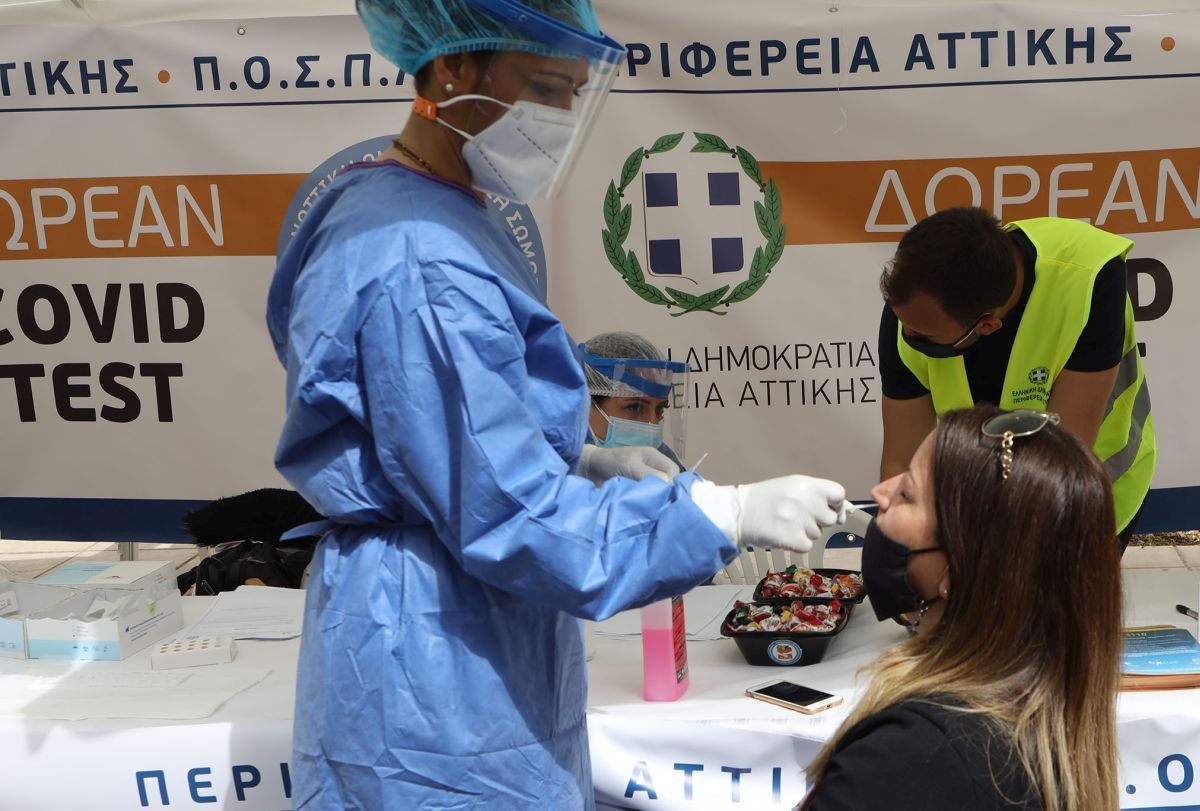All Public Sector Employees in Greece Must Now Self-test for Covid-19
Greece’s Covid-19 self-testing strategy will expand to the whole public sector as of April 26, Greek Deputy Health Minister Vassilis Kontozamanis said on Friday.
Speaking during the Covid-19 briefing, the deputy minister announced that all public sector employees will have to conduct weekly self-tests from Monday. The rule is also in force for priests and other church staff, who will have to conduct two weekly self-tests ahead of the Easter holiday.
The mandatory self-testing of employees is part of a government strategy that aims to detect asymptomatic cases. A number of employees in the private sector and some in the public sector are already self-testing once a week before going to work. High school teachers and students must also self-test for Covid-19 once a week before entering school grounds.
According to Kontozamanis, a total of two million self-test kits until now have been allocated to working citizens and Greece is one of the countries with the highest rates of testing for Covid-19.
Moreover, the deputy minister said self-testing will gradually increase among the population in May as employees in various sectors will gradually be returning to their workplace with the easing of lockdown restrictions.
Professor Papaevaggelou: Slight improvement recorded
Speaking during the briefing, Professor Vana Papaevaggelou, infectious diseases specialist and member of the Covid-19 health committee, said a slight fall in the number of active cases in Greece (now counting 25,000) has been recorded.
“We may be in the early days of improvement but we are not done, as there are many areas with very a high epidemiological burden such as the central and western sector of Attica, in Piraeus and in Western Macedonia,” she said, adding that the number of intubated patients in the country has also slightly decreased.
She did add, however, that Greece’s healthcare system remains under pressure, with 87 percent of the country’s ICU beds occupied. She specifically mentioned that 95 percent of ICU beds in Thessaloniki are occupied and 89 percent in Attica.
Update of Greece’s Covid-19 risk-assessment map
During the Covid-19 briefing, it was announced that the regional units of Kavala, Rethymno (Crete), Argolida and the municipality of Kissamos (Chania, Crete) were being moved to Covid-19 ‘dark red’ level (very high-risk) on Greece’s coronavirus risk-assessment map due to a rise in cases.
Due to an improvement of the epidemiological data, the following areas will be moved from ‘dark red’ level (very high-risk) to ‘red’ level (high risk): the island of Chios, the municipalities of Ioannina, Konitsa and North Tzoumerka, located in Epirus; the municipality of Eretria (Evia); the municipality of Veria (Imathia), the municipality of Lamia (Fthiotida); and the municipality of Rhodes.
For further information (in Greek) on the restrictive measures in ‘red’ and ‘dark red’ areas, press here. The map is updated every week.
The Hellenic National Public Health Organization (EODY) on Friday announced 2,754 new coronavirus cases and 76 deaths. The number of intubated patients in Greece’s ICUs is 819, according to EODY. Since the start of the pandemic, the total number of Covid-19 cases in the country has reached 329,134. The Covid-19 death toll in Greece is 9,864.






